Downing a big plate of food or even just a protein shake before hitting the pavement on an empty stomach can seem like a good idea—it can skyrocket your energy and power you through your fastest mile yet.
But in most instances, eating a large meal before a run will actually do the opposite. It can increase the risk of digestive issues like cramping and nausea, and can also leave you feeling sluggish, which isn't going to be good for your running performance.
As a general rule, if you're consuming a full meal, wait between 3-4 hours after eating to run. If you're eating a small snack, 1-2 hours is sufficient, but sometimes you can get away with 30 minutes.
How you feel after eating is going to vary between people. You may find you have more energy after a quick snack, or you may have no issues after eating a full meal.
This article will detail everything you want to know about running after eating. Keep reading to find out more!
Key Takeaways
- Most people feel best waiting around 30 to 60 minutes after a light snack and 2 to 4 hours after a large meal before running.
- Running too soon after eating can increase the risk of stomach cramps, reflux, nausea, and bathroom emergencies mid run.
- The ideal timing depends on what and how much you ate, your digestion, and whether you are doing an easy run or a hard session.
- Planning balanced pre run meals, staying hydrated, and giving yourself enough time to digest can help you perform better and feel more comfortable.

Is It Okay To Run After Eating?

Exercising on a full stomach probably isn’t the most comfortable option, but there’s no objective evidence to suggest that running after a meal is harmful to the human body. Depending on what you’re doing and the intensity of your workout, some people may not be bothered by it.
If you’re consuming a big meal and lifting, chances are you’ll be okay. But if you’re eating a full meal and doing high-intensity endurance activity (running included), it may not sit too well. This can lead to gastrointestinal discomfort, including cramping, bloating, and nausea, especially if you are dehydrated. To alleviate this discomfort, consider increasing your water intake and taking it slow.
Understanding the Digestive Process During Exercise
Here’s the thing. The digestion process takes work. It takes a lot of energy to digest and absorb what you’ve just eaten. And when you’re running soon after you’ve eaten, the digestive process is stopped by activation of the sympathetic nervous system.
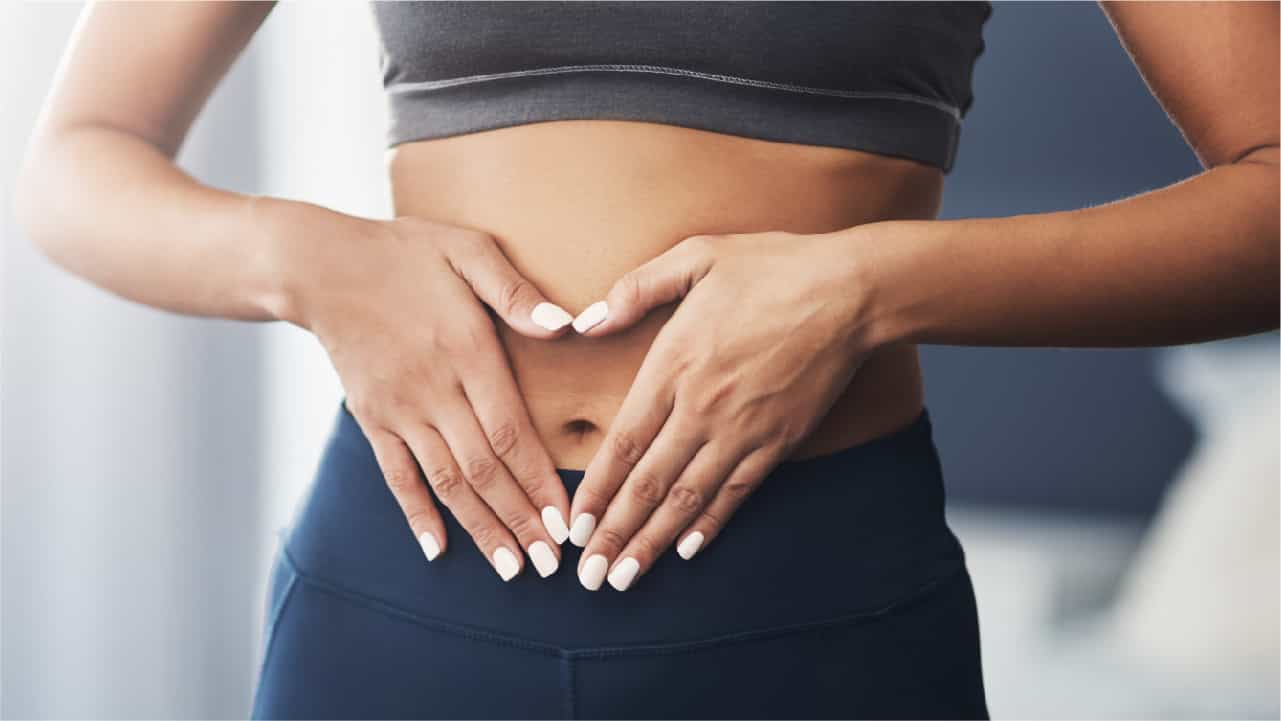
The gastrointestinal tract possesses intrinsic neural plexuses that allow most GI functions to have a good amount of autonomy, but the central nervous system (CNS) provides extrinsic neural inputs that regulate, modulate, and control most GI functions to some extent. 1 During digestion, blood flow is directed to the stomach and internal organs, which can lead to discomfort and reduced performance if you try to run with a full stomach.
The intestines may function without extrinsic inputs, but the stomach and esophagus rely on extrinsic neural inputs, especially from the parasympathetic and sympathetic pathways.
The Role of the Sympathetic Nervous System in Blood Flow
When the sympathetic nervous system (the fight-or-flight branch) is activated, it exerts an inhibitory effect on GI muscles and inhibits mucosal secretions that are important for digestion while at the same time regulating GI blood flow via neurally mediated vasoconstriction. This redirection requires more blood flow to the muscles in the arms and legs, reducing the blood flow available to the stomach and other internal organs.
In order for your body to properly digest food, it needs the GI muscles activated, and it needs these mucosal secretions. What exercising too soon after you eat does is essentially shut down the functions required to absorb the energy from your meal. So that big meal you just ate hoping to get serious energy from is sitting like a rock in your stomach, undigested, which can lead to stomach cramps.
When the sympathetic nervous system is activated, as it is with most exercise, it diverts its resources towards the systems needed immediately—cardiovascular, muscular, nervous, etc.—and away from the unnecessary functions like reproduction and digestion.
Exercise Timing and Digestion: Finding the Sweet Spot
Long story short, exercising after eating may be okay for some people depending on the type of exercise, but it's probably best to give your body 1-4 hours to digest the food before you take on anything super strenuous.
What Happens If I Exercise on a Full Stomach?
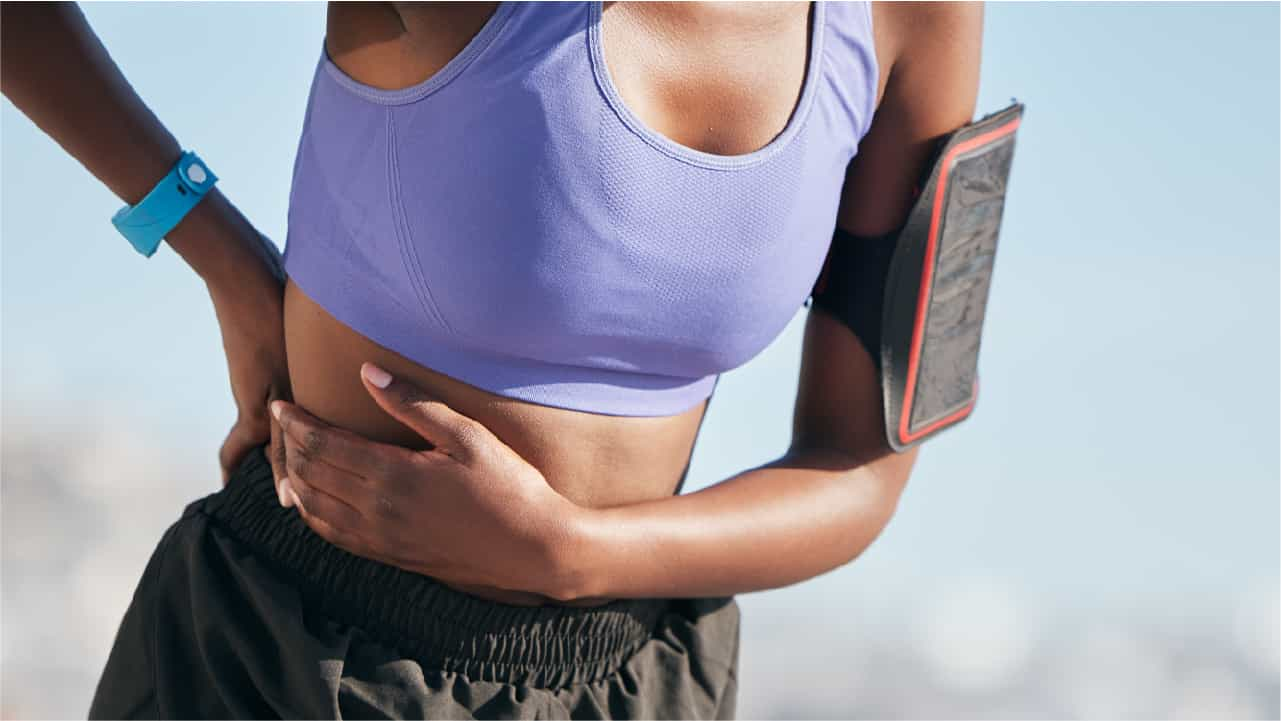
Exercising too soon after a meal can lead to unpleasant mid-workout side effects, mainly in the gastrointestinal tract. You may experience 2, 3
-
Nausea
-
Stomach Cramps
-
Bloating
-
Gas
-
Heartburn
-
Diarrhea
-
Stomach Aches
Not every runner will experience the same symptoms, but because blood flow is diverted away from your digestive organs to large muscle groups like the legs and arms, your digestion slows down, which can cause some level of discomfort.
Lower-intensity sports like walking, golf, or yoga are much less likely to trigger digestive symptoms. However, most of these side effects can be avoided by waiting a few hours after eating to train.
As a general rule of thumb, 1-2 hours minimum should be sufficient for a moderate-sized meal, while 30-minute to an hour is enough for a small snack.
The Length And Intensity Of Your Run Matters
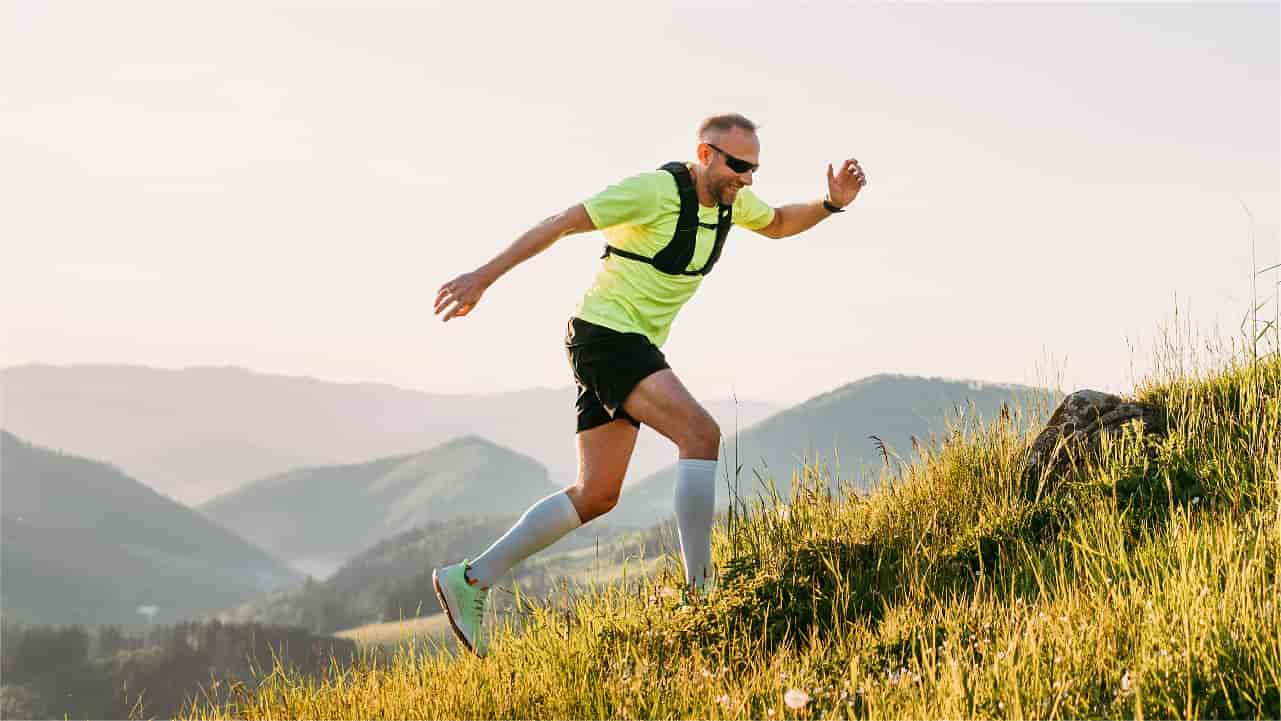
Fueling up before you hit the pavement may not be necessary for people running short distances, but a pre-workout power-up is essential for those running long distances.
While it may not be wise to chow down on a bunch of protein and fat, loading up on the carbohydrates can help fill up glycogen reserves and make sure you have enough immediate energy in the tank to sustain prolonged endurance performance.
Even still, you’ll want to give yourself a few hours before heading out to let your body break down the food and absorb the nutrients.
If you’re in a split and need something quick before heading out the door, grabbing a small snack that’s high in simple carbs can increase glucose concentrations and sustain energy for a good amount of time.
For shorter runs consuming quick-absorbing energy gels can be a practical alternative to solid food, offering a rapid energy boost without the wait.
For runs that are on the higher-intensity side, you’ll want to wait a good amount of time to allow most of your food to digest before heading out the door. If you’ve had a small meal, which is about 300-400 calories, wait 2-3 hours before running. The same goes for any other high-intensity sport like CrossFit, cycling, swimming, or martial arts.
4 Tips For Eating And Drinking Before Your Run
Stick to simple

Simple carbs are ideal if you're heading out for a run. They're rapidly digested and immediately break down to glucose to replenish glycogen stores and supply working muscles. You want to avoid slow-digesting complex carbs and protein-heavy meals, as this will also slow down digestion and not provide the right type of energy needed to maintain energy levels.
For a balanced pre-run snack, combine simple carbohydrates with a moderate amount of protein to fuel your body without causing discomfort.
Watch your portion sizes
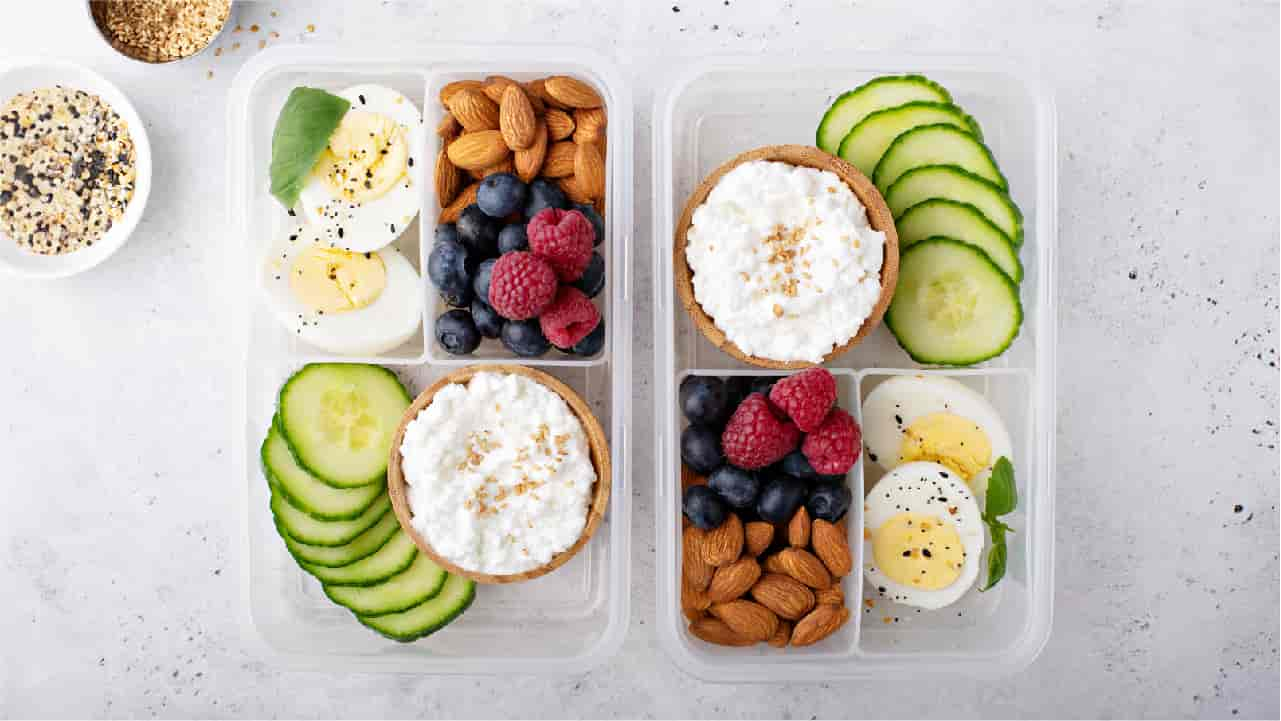
If you're going to eat a meal before running, keep it small. Depending on the period between when you eat and when you head out, you want to make sure there's enough time for your food to digest. If you're within 1-2 hours of hitting the streets, opt for a small snack rather than a full-blown meal. Save the big guy for a post-workout fuel-up.
Avoid high fiber foods and fat
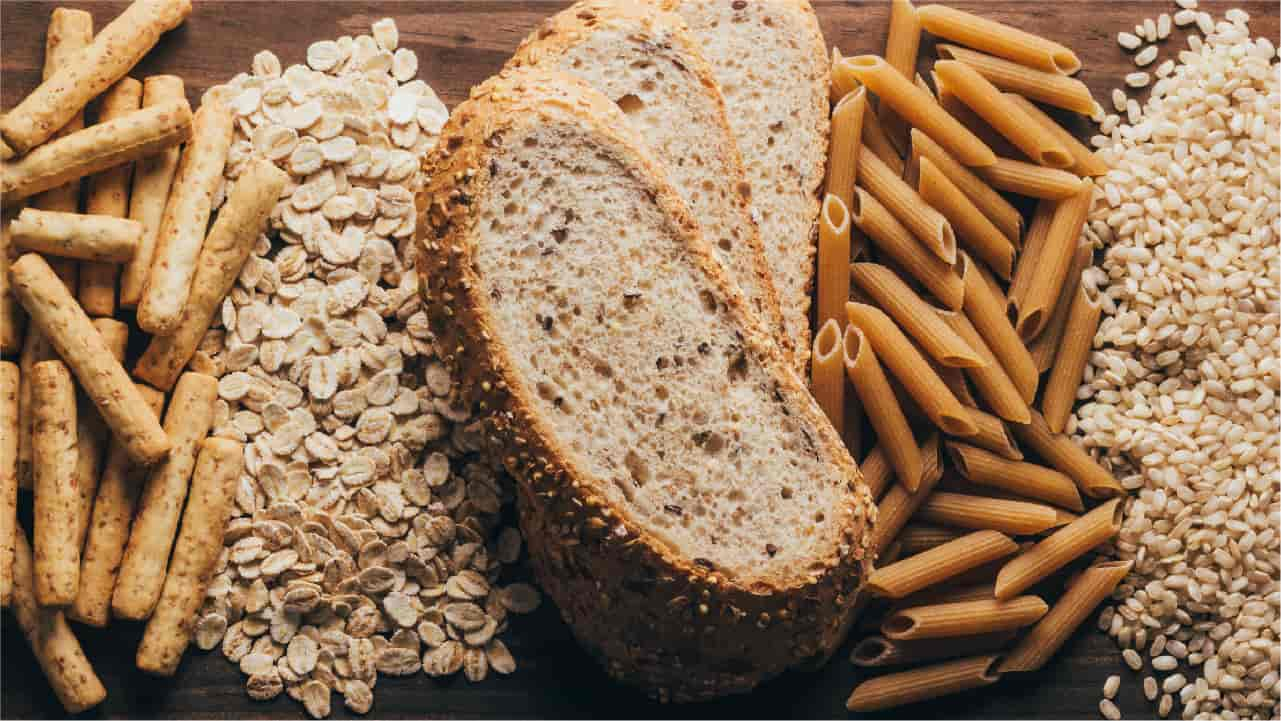
Of all the macronutrients, fats are digested the slowest and provide the greatest satiating effect. Because they're also not readily converted to glucose, they're best to avoid before a high-intensity workout to reduce the chance of experiencing stomach upset. On top of that, you also want to avoid high-fiber foods, as fiber slows down the speed at which the stomach is emptied and the speed at which glucose is absorbed into the bloodstream.
Stay hydrated
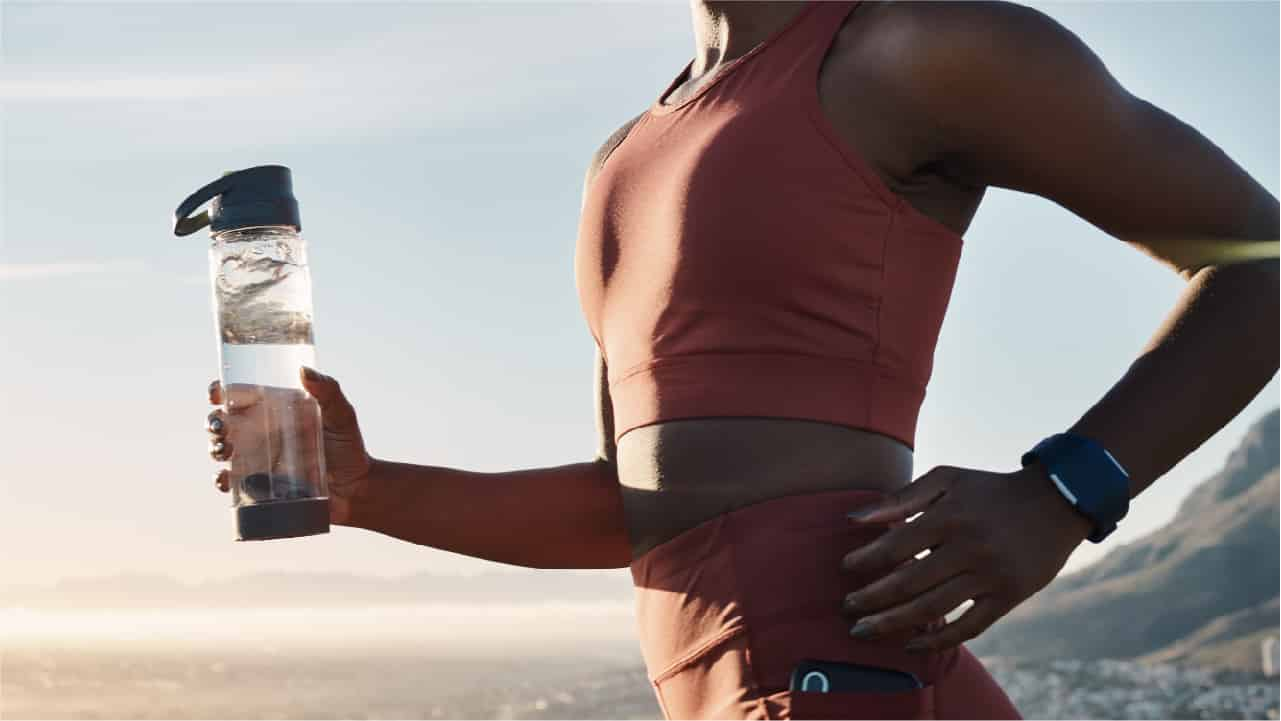
Fueling up with food is a sure-fire way to improve your performance, but so is staying hydrated. Your body requires water to function optimally, and without enough, you're going to start seeing performance decrements and fatigue. Hydrate properly before you run, and if you can, hydrate during.
Optimizing Your Running Performance
Understanding how your body responds to different foods is key. Whether you prefer to eat before a run or hit your morning workout on an empty stomach, it's essential to listen to your body. Incorporating a protein shake after your run can aid in recovery, while choosing the right carbohydrates and avoiding large meals can prevent discomfort and stomach cramps.
Always wait a sufficient amount of time after eating a large meal or snack to avoid leading your body into a state of discomfort that hampers your performance.
For those focused on weight loss, combining calorie control with running is a strategic approach. Try integrating a modest calorie deficit into your diet, but make sure what you are eating is enoughh to fuel your body. Try smaller portions of nutrient-dense foods that provide energy and support recovery. Look for lean proteins, whole grains, and plenty of fruits and vegetables.
Summary
If you're looking to optimize your energy stores and sustain a good pace during your run, eating something before exercising is generally recommended. That said, the effect you feel will be dictated by what you eat and when.
Still wondering how long to wait after eating to run?
For most people, waiting 1-2 hours after a moderate-sized meal to run is generally sufficient to avoid any digestive effects, and at least 30 minutes after a snack.
If you're doing a big fuel-up before a long endurance event, you may want to wait longer and/or incorporate more simple carbs to maximize glycogen reserves. In this case, you'll want to wait between 3-4 hours before heading out.
And to avoid having your meal sit like a lump of coal in your stomach, avoid high-fiber and high-fat foods, as they're slow to digest and can cause digestive upset.
The best thing you can do to prepare for a run is to listen to your body and use its cues to experiment with how best to stay fueled.
References
-
Browning KN, Travagli RA. Central nervous system control of gastrointestinal motility and secretion and modulation of gastrointestinal functions. Compr Physiol. 2014;4(4):1339-1368.
-
de Oliveira EP, Burini RC, Jeukendrup A. Gastrointestinal complaints during exercise: prevalence, etiology, and nutritional recommendations. Sports Med. 2014;44 Suppl 1(Suppl 1):S79-S85.
-
Samborski P, Chmielarz-Czarnocińska A, Grzymisławski M. Exercise-induced vomiting. Prz Gastroenterol. 2013;8(6):396-400.















